By Chris Fowlie, President, NORML New Zealand, 2002
Last June [2001] I was searched unlawfully by a group of police officers who claimed to smell cannabis on me. I was arrested and charged with possession of 0.7 grams of cannabis, but I fought the charge in court. In dismissing the charge, Judge Gittos set a precedent that will protect other people from being searched in similar circumstances. It got even better; The Dominion, arguably the most anti-cannabis newspaper in the country, wrongly published that I had been jailed. They refused to retract, we threatened to sue, and settled for enough money to take me around the world to research alternatives to cannabis prohibition. Ahh, the irony. My first stop would be the NORML conference in San Francisco. >>
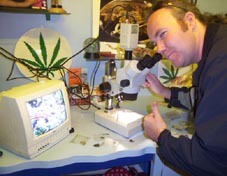
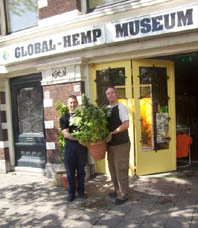
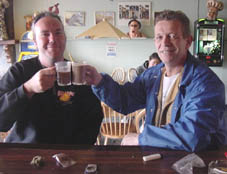
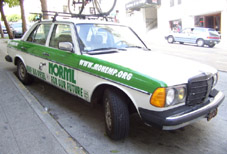

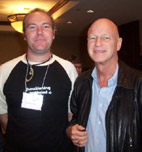

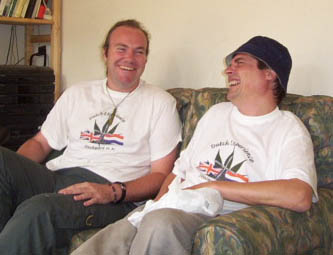
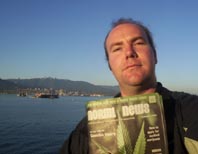
- International NORML Conference in San Francisco, USA
- Canada: Vancouver, BC
- UK: J-Day in London, and the Dutch Experience in Bournemouth
- Netherlands: Amsterdam
- Netherlands: Cannabizness Course
- Netherlands: Dordrect Weed Cup
- Netherlands: Legalize Parade in Amsterdam
- France and Spain
- UK: The Dutch Experience in Manchester
- Switzerland: hemp and hash
- Germany: Uber hanf
- Denmark: Christiania, Scandinavian haven
- Conclusion and Links
Cannabusiness
Findings from a world-wide weed tour
Dutch-style cannabis cafes are sweeping the world and it is only a matter of time before they open in New Zealand, says NORML president Chris Fowlie, midway through a tour around the world researching drug policies. Chris filed this report from Manchester, home of the Dutch Experience, the UK’s first coffeeshop.
A rational person who studies the evidence will soon come to the conclusion that cannabis prohibition is a failure, and that a system of regulated availability is best solution to community concerns of uncontrolled marijuana sales to youth by organised criminals.
Unfortunately, drug policy is decided by politicians who are not often known for their rational minds. It took almost thirty years of campaigning to get parliament to even reconsider the law, and after thousands of submissions, a year of hearings and six months of doing nothing, the inquiry into the legal status of cannabis has been abandoned by the Labour Government. This is a slap in the face for New Zealand’s half a million pot smokers and especially all those who made a submission. It shows that despite their talk, politicians will not willingly act to end cannabis prohibition. The scholarly research and the vast majority of submissions supported having cannabis cafes, but our elected representatives were too gutless to even write a report, let alone do anything. I think doing nothing is not an option.
An out-of-court settlement from The Dominion newspaper related to my recent court case, together with the ongoing support of The Hempstore, has enabled me to undertake a worldwide tour researching alternative cannabis policies. It was immediately apparent to me that New Zealand’s cannabis policy is out-of-step with the rest of the world and urgently in need of reform. Our geographical isolation and our willingness to be manipulated by the USA has meant we have fallen behind years of progressive drug policy reform in Europe and elsewhere. European drug policies have for years been moving towards the Dutch model of tolerance and harm reduction. Even in America there are pockets of freedom and tolerance with a majority of people now living in States where marijuana is decriminalised and medical use is legal. The first marijuana cafes are open on the West Coast, and the recent direction of US federal and state legislation is focussed more on education and treatment than imprisonment.
While I was in Canada visiting the cannabis cafes and medical marijuana clubs, the Senate Special Committee on Drugs released a discussion paper backing marijuana decriminalisation and noting that “Research evidence … does not appear to support criminalization and penalization of cannabis.”
The UK is also in the midst of a huge debate about what to do with their drug laws. Following a series of reports, the government has said it will down-grade cannabis this July to Class C, which means that although it will still be technically illegal, people cannot be arrested – or searched – for it. It’s decriminalisation in all but name. A home-grown revolution is sweeping the UK, with several cannabis cafes already open and more set to follow.
By comparison, the absolute prohibition still blindly pursued in New Zealand seems outdated, completely unrealistic and urgently in need of reform. By presenting the following information about jurisdictions who have successfully implemented alternative drug policies, I hope to inform and educate those with an interest in New Zealand’s cannabis policy.

